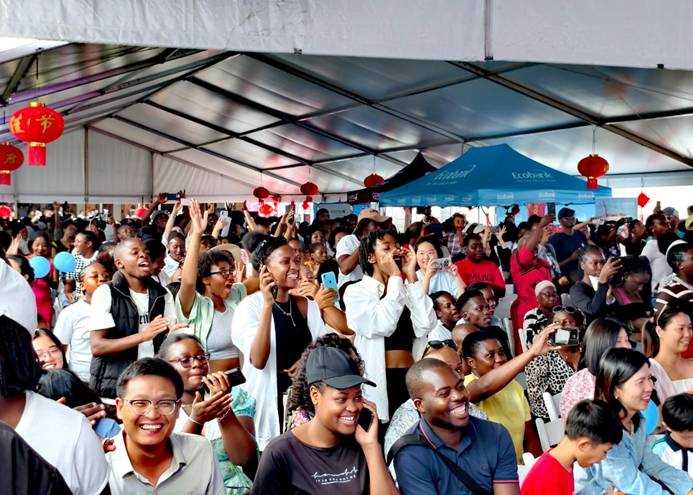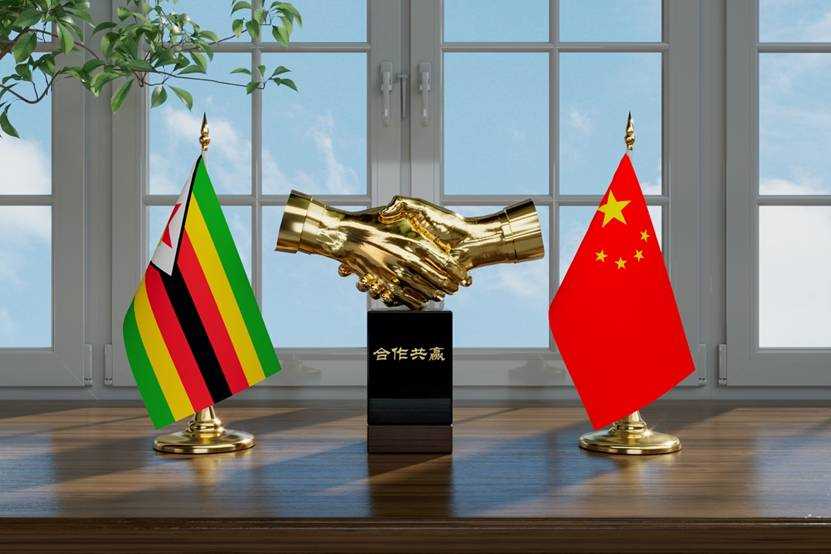
Patience Muchemwa- Senior Reporter
Kudakwashe Makoni, a 23-year-old Political Science and Diplomacy graduate from the University of Zimbabwe, recently represented the nation at the 24th Chinese Bridge Chinese Proficiency Competition in China.
His journey reflects not only personal dedication but also Zimbabwe’s growing cultural and diplomatic engagement with China.
Since 2024, Makoni has been passionately studying Chinese language and culture, driven by a desire to build bridges between Zimbabwe and China.
He sees Chinese proficiency as a powerful tool for strengthening cross-cultural partnerships and advancing diplomatic engagement.
Makoni’s path to Chinese fluency began at the University of Zimbabwe, where foreign language study is compulsory. “Our department chose Chinese language as our foreign language, and I remember many people, including me, didn’t like it at first because it is generally viewed as the most difficult language,” he recalled with a smile.
“But if you're willing to learn, it's not that difficult.” Excelling in the subject, Makoni earned distinctions in Beginners, Intermediate, and Advanced Chinese modules. Encouraged by his friend, Discent Jingo, he applied for a scholarship through the Chinese Embassy and the Confucius Institute.
"Fortunately, I was awarded a scholarship, and I can say that’s where my Chinese language journey truly commenced,” he said.
Reflecting on how his studies shaped his success, Makoni noted: “My studies at the University of Zimbabwe laid a bedrock for the competition. Chinese is a tonal language, so you can’t just cram a speech and expect to pronounce it correctly without understanding tones.”
He emphasized the importance of deep linguistic knowledge: “In China, a series of interviews are conducted entirely in Chinese.
"Without a grasp of sentence construction and general vocabulary, it’s an automatic ‘No.’”
Representing Zimbabwe in China was a defining moment for Makoni. “Standing in front of global audiences, I felt the weight of our history and the hope of our future,” he shared.
“It’s one of the best gestures I’ve ever done in my academic career. Every moment was a chance to bridge cultures, to show that Zimbabwe is not just a place on the map, but a vibrant spirit that thrives in dialogue and exchange.”
To honor his heritage, Makoni proudly wore traditional Zimbabwean regalia during performances, symbolizing unity between cultures.
The competition was not without hurdles. “One of the biggest challenges was the language barrier.
Related Stories
Many contestants were Chinese majors, and some were already studying in China, so their fluency was far ahead of mine,” he admitted.
Coming from an environment where Chinese is taught mainly in class posed additional challenges. Yet Makoni remained resilient: “I made sure to ask my friends to explain anything that wasn’t clear. I also hope Zimbabwean universities will introduce Chinese majors in the future.”
His prior exposure during the League of Tropical Universities Summer Camp in Hainan earlier this year helped him adapt quickly to China’s weather, food, and culture.
For Makoni, the highlight of the competition was the cultural exchange.
“Visiting historical places such as The Great Wall of China (长城), the Palace Museum (故宫), and Mount Wuyi (武夷山) was a dream come true,” he said enthusiastically. “Not to forget the friendships I made across the entire world.”
Makoni believes Chinese language education holds great promise for Zimbabwe’s youth. “Every day, we come across vacancies seeking Chinese translators. Learning Chinese can create employment opportunities,” he explained.
He even linked his academic research to the subject: “I wrote a dissertation titled ‘A Framework to Strengthen the Strategic Benefits from Teaching and Learning Chinese Language in Zimbabwe’s International Relations.’ It shows how Zimbabwe can utilize Chinese language education to promote its foreign policy goals.
We cannot talk of Zimbabwe’s foreign policy goals without Zimbabwean young people.”
“Chinese language and culture play a vital role in strengthening Zimbabwe–China relations by deepening mutual understanding and fostering people-to-people connections,” Makoni said.
He highlighted how platforms such as the Confucius Institute enable Zimbabweans to engage with China’s heritage while giving Chinese partners insight into Zimbabwean values.
“This cultural diplomacy not only enhances cooperation in education, trade, and infrastructure, but also builds trust and respect between our nations,” he added.
With his eyes set on the future, Makoni is determined to use his skills in diplomacy. “As a Political Science and Diplomacy student, I plan to use Chinese to engage in international dialogue, support diplomatic initiatives, and strengthen Zimbabwe–China cooperation,” he stated.
“Whether through policy work, cultural exchange, or global forums, I hope to serve as a bridge between our nations.”
From hesitant beginnings to confidently representing Zimbabwe on the world stage, Kudakwashe Makoni’s story is one of resilience, cultural pride, and vision.
His journey reflects the powerful role of language in diplomacy — and the promise of Zimbabwe’s youth to connect nations through dialogue and shared understanding.




















Leave Comments